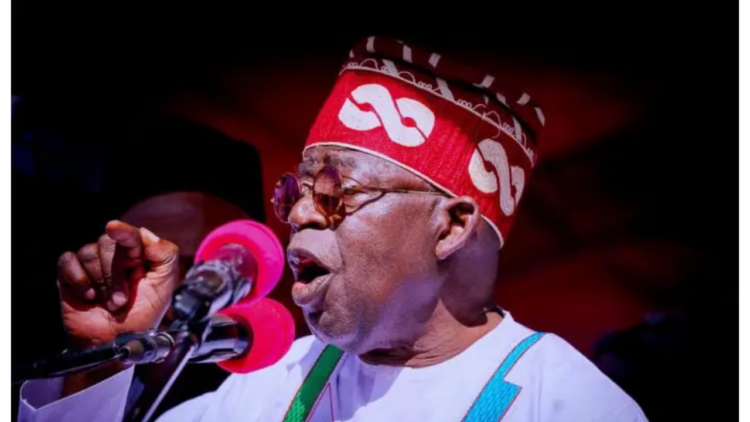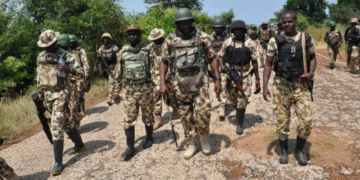On March 1, 2023 the Independent National Election Commission declared Bola Ahmed Tinubu of the ruling All Progressives Congress (APC) as the winner of the February 25 presidential election. Tinubu, a former governor of Lagos state polled 8,794,726 votes to defeat Atiku Abubakar, a former Vice President and candidate of the People’s Democratic Party(PDP) who scored 6,984,520 votes. In third place was Peter Obi of the Labour Party who had 6,101,533 and Rabiu Musa Kwankwaso of the NNPP came a distant fourth with 1,496,687 votes. On the same day the election was held, Nigerians also elected 469 members of the National Assembly, many of them first term members of the upper and lower legislative bodies.
But the presidential election, like no other in Nigeria’s recent history, was characterized by issues of religion and tribe, particularly because all three of the leading candidates represent the country’s major tribes. Unsurprisingly, the first and second runners-up are also claiming victory at the election, alleging fraud in the collation of the results. Outside of the ruling of the Presidential Election Petition Tribunal, which is yet to formally begin sitting, and subsequently, that of the Supreme Court, there is no legal impediment to Bola Tinubu being sworn-in on May 29, 2023.
As he assumes office, he will not only be appointing ministers and heads of agencies to help deliver on his campaign promises, the in-coming president will be in a position to influence the leadership of the National Assembly. And it is pertinent, at this point, in our opinion, to remind the president-elect on the need for him to have national outlook on how he forms his government and his preferred choices for leading the National Assembly. Politically, Tinubu has built his career by focusing and amassing influence in the southwest of the country. And as he admitted himself, he has had a life-long ambition to be president. Undoubtedly, it was that ambition that led him to give up the the Yoruba identity of the Action Congress of Nigeria (ACN) and merge with a political party that had roots in the northern part of the country.
In this alliance, however, some regions were sidelined in the makeup of the leadership of the National Assembly with the north cornering both the presidency and senate presidency, while the southwest held on to the vice presidency and the position of speaker. We urge the president-elect not to travel down this path in forming his government.
But from all indication, the entire political camp of the president-elect have not gotten over the euphoria of winning the election. Yet, the contest for the seat of Senate President and that of the Speaker of the House of Representatives have begun in earnest.
Though the lobbying is mostly behind the scenes, the general public is getting glimpses of what is being said in defense of individual lawmakers interested in these seats. Most are deploying every arsenal at their disposal to defend and equate their interest to that of the constituencies, be it political, tribal or religious. All three played a huge part in the contest for the presidency and the same issues are likely to rear their heads in the coming weeks and months as the party’s different factions lobby for the top jobs in the National Assembly.
There are already safe guards enshrined in the constitution aimed at fostering unity and ensure no state or religion or tribe is shut out of governance. Beyond making it mandatory for the president to appoint a minister from every state of the federation, the constitution is clear that the “composition of the Government of the Federation or any of its agencies and the conduct of its affairs shall be carried out in such manner as to reflect the federal character of Nigeria and the need to promote national unity, and also to command national loyalty thereby ensuring that there shall be no predominance of persons from a few states or from a few ethnic or other sectional groups in that government or any of its agencies.”
Very easily, Bola Tinubu can look for a Lagosian to fill the ministerial slots of the 36 states, unless there isn’t a qualified indigene of a particular state that had chosen to make Lagos home. And if anything can be learnt from the last eight years of the APC government, it is that the constitution is not a guarantee that every region, tribe and religion will be represented in deciding not just who fills the seats in the presidency, but also those in the National Assembly. They should be shared among the six geo-political zones of the country. We take it that the choice of fielding a Muslim-Muslim ticket was made in good faith and for political expediency. The political backlash it has created, Nigerians voting along religious lines make it necessary for the ruling party to return to the model adopted by previous governments and ensure the senate presidency is zoned to the south, while the Speaker of the House of Representatives returns to the north, preferably the North-central. Between 1999 and 2011, the zone that produced the deputy senate president also got the chairmanship of the ruling party, while the zone that produced the deputy speaker also got the position of Secretary to the Government of the Federation. It is our believe that these concessions will go a long way in healing the wounds of a very contentious election.










